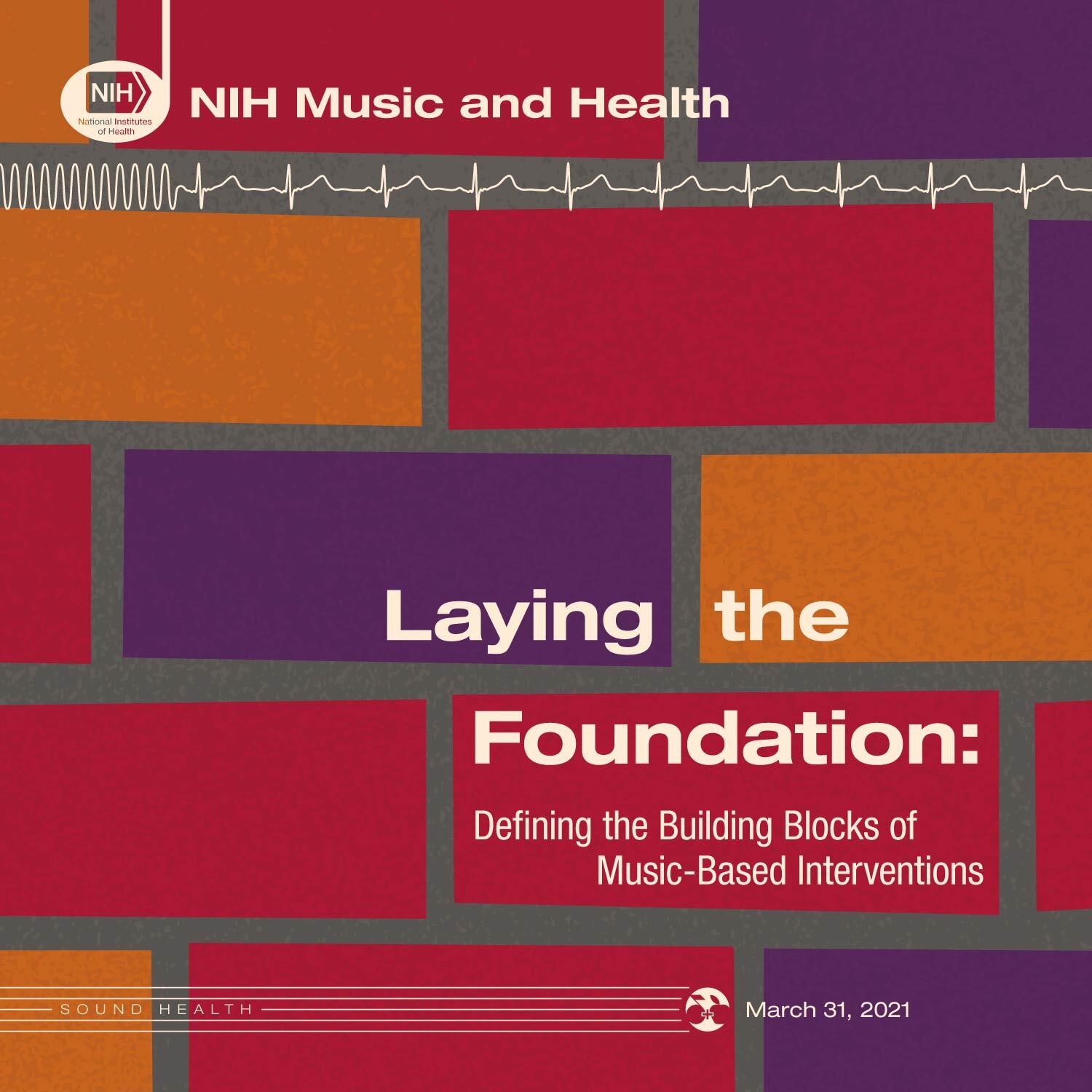Laying the Foundation: Defining the Building Blocks of Music-Based Interventions
Event Description
The National Institutes of Health (NIH), in collaboration with the Foundation for the NIH and the Renée Fleming Foundation, are sponsoring an expert panel discussion—the first in a series of three meetings intended to develop evidence-based music therapies for brain disorders of aging.
The roundtable format will be used to gather input from individuals representing neuroscience, music therapy and music medicine, behavioral intervention development, clinical trial methodology, and patient advocacy and art-based organizations. Mr. Alan Weil, editor of Health Affairs, will serve as facilitator in fostering a dialogue between the NIH organizers and a group of invited experts. The NIH organizers will utilize input gathered from these meetings and the broader scientific community to inform the creation of a toolkit for research on music and health across the lifespan. NIH organizers ultimately hope to develop and disseminate the toolkit, which will include a consolidated set of common data elements for music-based intervention protocols.
- Download the program book, which includes abstracts, bios, and panelist questions
- View the facilitator and panelist bios
NIH Music and Health Meeting Series:
- March 31, 2021: Laying the Foundation: Defining the Building Blocks of Music-Based Interventions
- June 18, 2021: Music and Health: Assessing and Measuring Target Engagement—Mechanistic and Clinical Outcome Measures for Brain Disorders of Aging
- August 25, 2021: Relating Target Engagement to Clinical Benefit: Biomarkers for Brain Disorders of Aging

Watch the event:
Agenda
1:00–1:10 p.m. | Introduction
- Francis Collins, M.D., Ph.D., Director, NIH
- Renée Fleming, Renowned Soprano, Arts & Health Advocate
1:10–1:20 p.m. | Welcome
Sponsoring Institute and Center Directors:
- Helene M. Langevin, M.D., Director, National Center for Complementary and Integrative Health
- Richard J. Hodes, M.D., Director, National Institute on Aging
- Nina F. Schor, M.D., Ph.D., Deputy Director, National Institute of Neurological Disorders and Stroke
1:20–1:50 p.m. | Orchestrating Rigorous Research
- Shai Silberberg, Ph.D., Director of Research Quality, National Institute of Neurological Disorders and Stroke
Presentation (20 minutes)
Question and Answer Session (10 minutes)
1:50–2:00 p.m. | Charge to Panelists and Thematic Group Discussion Setup
- Emmeline Edwards, Ph.D., Director, Division of Extramural Research, National Center for Complementary and Integrative Health
- Alan Weil, J.D., M.P.P., Editor-in-Chief, Health Affairs
2:00–2:25 p.m. | Theme 1—What is the importance of conceptual models for music-based interventions?
- Hypothesis
- Supporting data: rationale, extant literature, rigor of existing data, and knowledge from practice
2:25–2:45 p.m. | Theme 2—Who should be included on the investigative team?
- Interdisciplinary team with expertise in music therapy/music medicine, neuroscience, clinical trials methodology, behavioral interventions, and patient engagement
- Considerations for bringing this team together: strategies to identify and assemble the best team as guided by the research question, workforce development, partnership, and collaborations
2:45–3:25 p.m. | Theme 3—What building blocks are needed to develop rigorous and reproducible music-based interventions?
- Intervention content: type, intensity, dose, frequency, duration, and follow-up
- Intervention strategies and protocol: delivery, feasibility, optimization, fidelity, and adherence
- Choice of population, disease condition, and lifespan
- Study design considerations: sample size, control group/comparator, blinding, and randomization
3:25–3:30 p.m. | Break
3:30–3:55 p.m. | Theme 4—What are the best metrics to track mechanistic and clinical outcomes?
- Mechanistic outcomes: neural, psychological, physiological, and behavioral
- Clinical outcomes: health status, quality of life, and function
3:55–4:20 p.m. | Theme 5—Are there additional methodological research and trial design issues to be considered?
- Subject burden
- Acceptability
- Use of technology and telemedicine
- Caregiver participation
4:20–4:50 p.m. | Broad Question and Answer Session
- Videocast audience and Zoom meeting participants
4:50–5:00 p.m. | Wrap-Up and Next Steps
- Coryse St. Hillaire-Clarke, Ph.D., Program Director, Sensory and Motor Disorders of Aging Program, Division of Neuroscience, National Institute on Aging
- Robert Finkelstein, Ph.D., Director, Division of Extramural Activities, National Institute of Neurological Disorders and Stroke
Individuals who need reasonable accommodation to participate should contact info@nccih.nih.gov or the Federal Relay, 1-800-877-8339, by Wednesday, March 24.